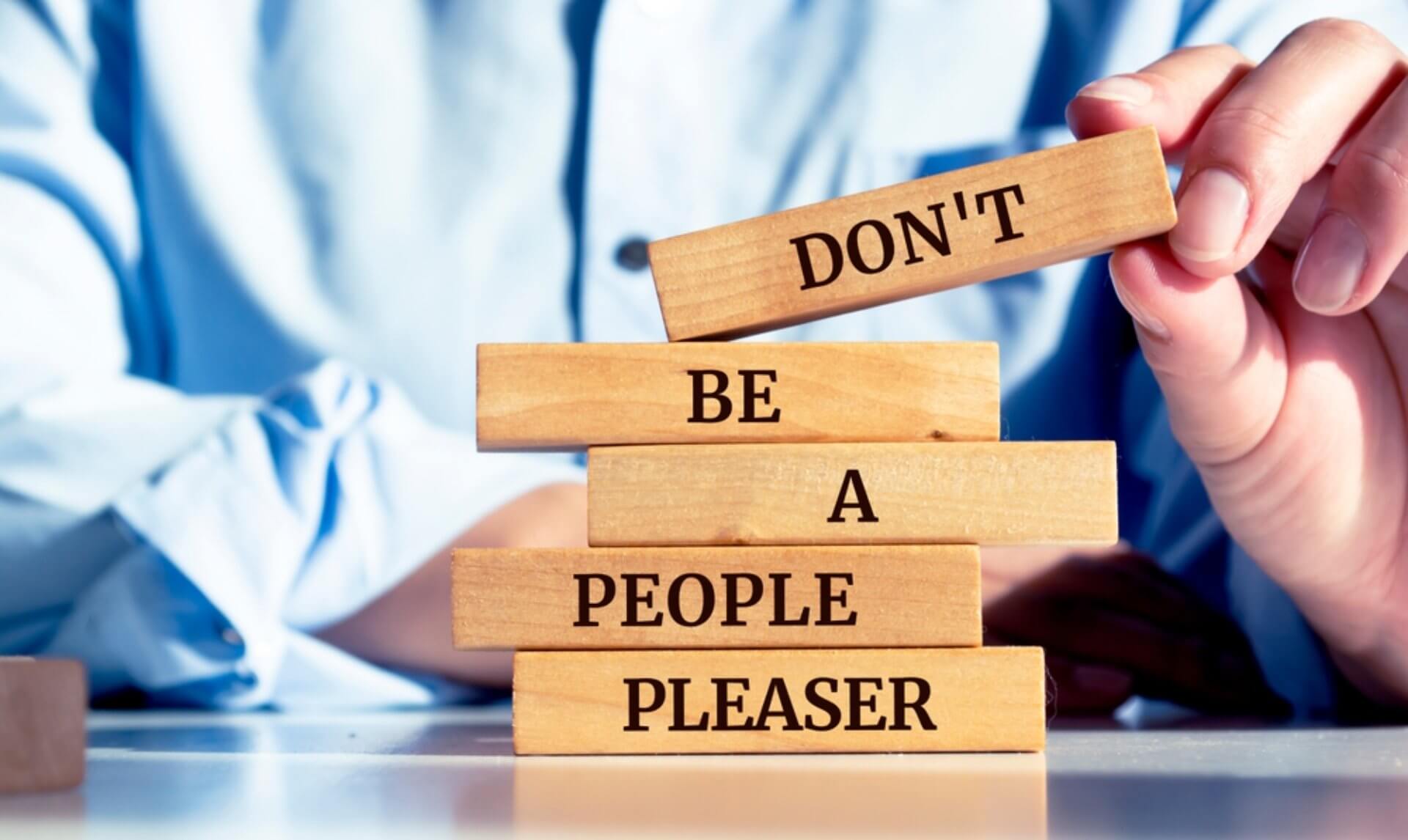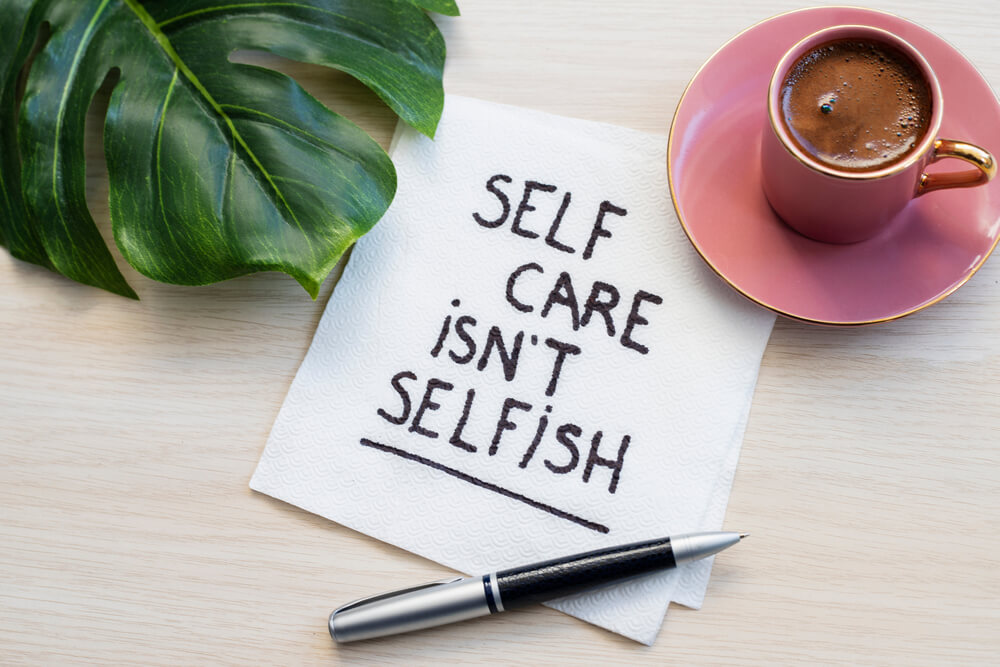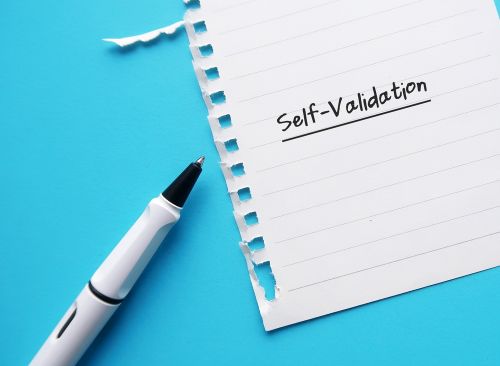Are you someone who tends to put everyone else’s wants or needs before your own? Do you tend to say yes to everything and fear saying no to people? Chances are, you’re a people pleaser.
Someone with this personality type will have a strong urge to please others even at their own expense and will do whatever it takes to make other people happy, often going out of their way for friends, family members or colleagues.
Whilst being kind and helpful can be positive things, being a people pleaser can make you feel emotionally drained, stressed and burnt out. If you’re wanting to stop this unhealthy behaviour, check out our guide!
How To Tell If You’re A People Pleaser?
Do you often prioritise others’ happiness over your own? Do you constantly seek approval at the expense of your own needs and desires?
Becoming aware of your people-pleasing behaviours is the first step towards creating a healthier balance between your well-being and how you interact with others.
Below, we’ve listed a few signs that you may be trying hard to constantly please other people.
- Pretending to agree with people, even when you disagree.
- Finding it difficult to say no to people.
- Apologising for things even when you don’t need to.
- Not admitting when someone has hurt your feelings.
- Feeling responsible for other people’s feelings.
- Taking on extra work or responsibilities, even if you don’t have the time.
Tips To Stop Being A People Pleaser
Stopping your people pleasing behaviour can be difficult as you will have developed familiar patterns, but don’t worry, we’ve put together some top tips to help you.
After you’ve finished reading our guide, you’ll be able to break your people-pleasing habits in no time!
1. Practice Saying No
If you want to break your people pleasing habits, it starts with learning to say no when you don’t want to do something, or someone asks something unreasonable of you.
Rather than being a doormat for someone in an attempt to make them like you, learn that it’s okay to say no to unreasonable requests.
It doesn’t make you a bad person if you decline a request or opportunity, so prioritise your well-being, as over committing can impact your mental health
For example, if you don’t have enough time to manage taking on another task at work tell yourself “I’m allowed to say no” and communicate with your manager that you don’t have the time.
2. Set Healthy Boundaries
To stop people pleasing behaviours, you should firstly set healthy boundaries, and recognise that it’s acceptable to put yourself first at times.
Whether it’s with colleagues at work, in relationships, with friends, or family members, it’s important to set clear and healthy boundaries to prevent you from overextending yourself for other people.
Instead, you should communicate your boundaries and what you’re willing to put up with and what you’re not, and over time people should respect them, meaning your relationships will become more balanced.
3. Prioritise Your Own Needs
It can be difficult to remind yourself, but taking care of your own needs is not selfish, it’s essential for your well-being.
Rather than focusing too much of your time and energy on things that you don’t want to do, you should ensure you make time for self-care, as well as hobbies and activities that make you happy.
From spending time with friends to reading a book to hitting the gym to writing in a journal to giving yourself a break when you need one, self-care is so important and looks different for everybody.
Often, people-pleasers have negative self-beliefs, so you should try to challenge these thoughts and replace them with positive ones.
By putting your own needs before other peoples, you’ll become better equipped to help others without feeling drained or burnt out!
4. Refrain From Over Apologising
As a people pleaser you’re probably someone who constantly apologises even for things that are out of your control, or during situations that were not your fault.
Apologising excessively, even when you haven’t done anything wrong, can be a sign of trying to keep the peace and avoid conflict.
Whilst there are times when saying sorry is the right thing to do, like when you’ve said a comment which upset your friend, there are other times when apologising doesn’t help you.
Overstretching yourself for others can give more problems than it solves, so try to refrain from saying sorry unless you have a legitimate reason to.
5. Focus on Self-Validation
Shifting your focus from seeking validation from other people in your life to validating yourself internally will be a game changer as a people pleaser.
You should try to acknowledge your accomplishments, strengths, and worth independently of other people’s opinions, and celebrate your successes, no matter how small.
After all, no matter what you do, you’ll always disappoint someone, so remind yourself you can’t please everyone and instead strive towards validating yourself!
6. Surround Yourself With Positive People
To help you break free from people-pleasing habits, you should try to surround yourself with positive people who appreciate and respect you, and your authentic self.
If people are overstepping the boundaries you’ve set and taking advantage of your kindness, it’s likely they know you have people pleasing tendencies and struggle to say no, which makes them toxic.
If it feels like you’re being manipulated into doing things by someone at work, or a friend or family member, try to be firm and clear about saying no to anything you don’t want to do.
Instead, you should focus on forming relationships with people who encourage you to be true to yourself and who value you as a person!
It may not always be possible to surround yourself with positive people, like your workplace, but if an environment is impacting your mental wellbeing, it’s worth getting out of there.
7. Seek Support
Breaking free from your people-pleasing habits is no walk in the park, but there is support out there if you’re struggling and have already tried other strategies.
Whether it’s talking with your friends, family members, or significant other, they will be able to provide valuable insights to help you and can be a shoulder to lean on in times of need.
If you’re struggling to communicate your boundaries and say “no” to people in your life and it’s starting to affect your mental well-being, it could be wise to speak to a therapist.
It can feel daunting, but speaking with a mental health professional can really help you to find a balance between pleasing others and pleasing yourself!
There we have it, the end of our post on how to stop being a people pleaser, we hope that these tips will prove useful for you.
Remember, being a people pleaser isn’t a good thing, as it’s about making other people feel better rather than yourself, so make a change and do what’s best for you!
Do you want to start practising yoga at home? Take a read of our guide filled with tips and tricks to help you out.
If you’re a young professional searching for co-living accommodation, take a view of our properties today in locations across the UK.










